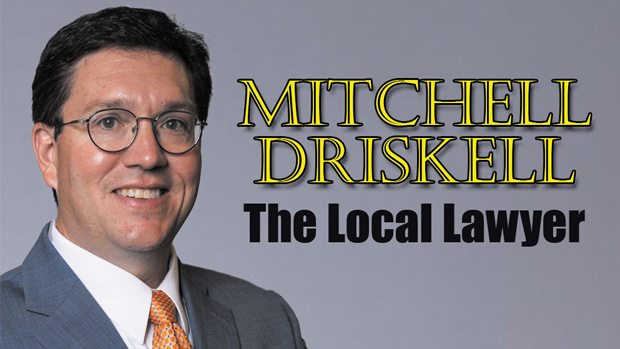
Gun Rights on the Docket
Coming up for argument at the Supreme Court in November is New York State Rifle & Pistol Association v. Bruen, the first major gun rights case since the 2008 decision in District of Columbia v. Heller, which found that individuals have an individual right to possess firearms, not limited to group, militia ownership, but that the right to bear arms is not unlimited and can be regulated. This case will decide how far the regulations can go. The specific issue is New York’s concealed carry permit process; more broadly, the issue is whether or not individuals have the right to carry firearms outside of the home for self-defense. New York is one of many “may issue” permit states, meaning that even if an applicant has passed all background tests, the applicant must show a specific “special need” to carry a firearm. You might get a carry permit, you might not, it is up to a government official. Other states, like Mississippi, are “shall issue” states where applicants that pass background checks must be given a license to carry a firearm.
This is a very important case and will decide the extent that states must respect, and cannot limit, the individual right to carry a firearm announced in Heller and whether or not a federal, across-the-country rule on gun carry makes sense, i.e. whether New York and Mississippi must, or should, have the same gun carry rules. Pro-gun folks say that the constitutional right is clear and must be respected across the country, just like, for example, abortion rights have been established as being country-wide. Anti-gun folks say that it makes no sense for New York City to have the same gun rules as rural communities, which makes 100% sense, but then they run face first into the Constitution which is intended to set across-the-country rules. So, what should give? The Constitution or the realities of twenty-first century urban living?
Early Draft of “Court Packing” Commission
After Trump put conservative Amy Comey-Barrett on the Supreme Court, replacing liberal Ruth Bader Ginsberg, the left started talking about increasing the number of justices from the traditional nine; “Court Packing” it’s called. Once elected, Joe Biden announced an all-star commission of progressive legal and political minds to study the issue. An early draft of the report was released and is staunchly against Court Packing. The commission warned that the history of other countries has shown that changing the makeup of the high court for political or ideological reasons signaled the end, or beginning of the end, of effective democracy. Changing the supreme court of the land because the people in power did not like the Court was a sign of pulling power to a centralized group of powerful people and away from citizens. They said it was a bad look for people in power to change up the Court that is supposed to keep them in line, makes it look like they do not want a Court looking over their shoulder and keeping their power in check. That’s real talk. This commission of people, appointed by Joe Biden, says Court Packing sucks. All of this is exactly what Ruth Bader Ginsberg said herself. Supreme Court justices are brilliant people who value being “right” on the interpretation of the Constitution much, much, much more that the political meaning or consequences of their decisions. It looks like Court Packing is out the window.
Religion verses Separation of Church and State
In Maine, as odd as it sounds, some local school districts do not have high schools. In those districts, students can either go to another public school nearby or get vouchers to pay for private high school. But not all private schools—the law does not allow these tuition vouchers to be used at any school that teaches religion. The Supreme Court will decide if that law is constitutional in Carson v. Makin. Opponents of the law claim that the law discriminates against religion. Supporters say, not so fast, the Supreme Court has said tuition voucher programs cannot discriminate against schools based on their “status” as religious schools. They argue that they are not discriminating based on status and point out any religious school that does not teach religion can get the voucher. They say the law prohibits government money from being put to religious “use,” the actual teaching of religion, and that is not a status-based discrimination. A loophole!! Damn lawyers for both sides (see Texas, abortion) always finding loopholes and these are exactly the kinds of situations that end up in the Supreme Court. Is there a difference between this law and others that simply prohibited vouchers from going to religious schools? Is that difference constitutionally significant? Can we all agree to just respect everyone else’s rights and focus on improving the country and our community?
Mitchell Driskell has been an Oxford lawyer for twenty-one years. He practices criminal law, family law, business transactions and civil litigation. Email him mdriskell@danielcoker.com. Follow him on Instagram @mdriskell, twitter @MODIIItweets, TikTok @DriskellLaw and on Facebook.



